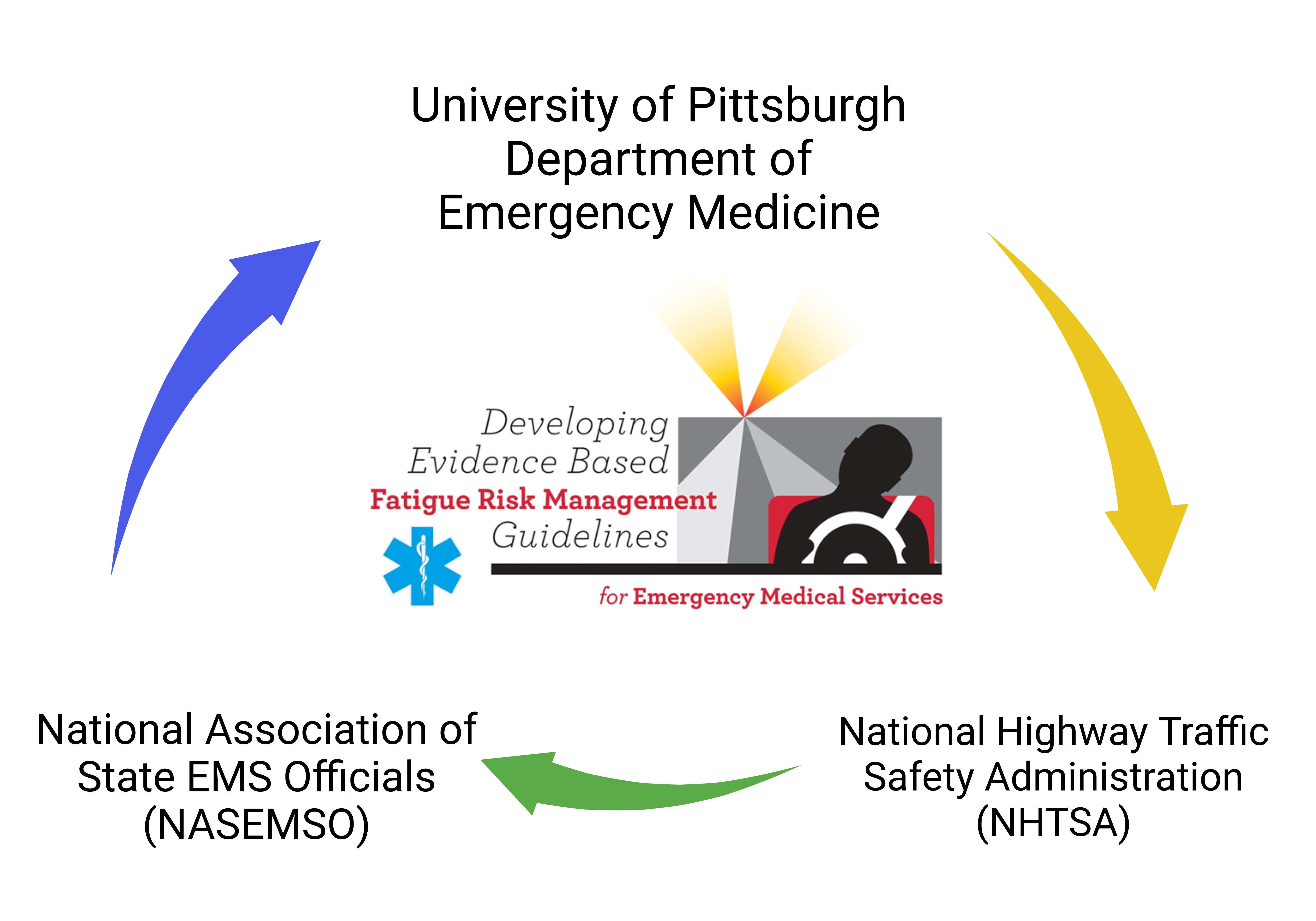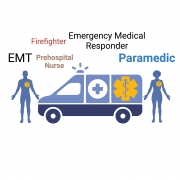Background:
Investigators at the University of Pittsburgh Department of Emergency Medicine lead numerous projects that address the impact of shift work on the health and safety of emergency care workers. The purpose of this webpage is to provide a summary of these projects and links to additional information. To learn more about the various projects, please contact Daniel Patterson, PhD, NRP at pdp3@pitt.edu.
The CODE 3 First Responder Sleep Health Research Study
- Poor sleep health and fatigue are common among EMS clinicians and other first responders. Chiefs, Directors, Deputy Chiefs, Supervisors, and other Administrators of EMS operations face numerous challenges when it comes to addressing the sleep health and fatigue of frontline personnel. The purpose of this research study is to identify the barriers EMS Administrators experience so a NEW program can be created to help administrators. We are seeking the feedback and opinions of EMS Administrators (and frontline personnel). We want to hear from YOU! We want to know about your experiences and hear your opinions. We want to hear from Urban and Rural EMS Administrators and frontline personnel. We want to hear from Administrators and frontline personnel from all 4 U.S. Census Regions (Midwest, Northeast, South, and West). If you want to participate please reach out to the study coordinator at: dgr21@pitt.edu. You can also click on the images below to view research study flyers with more information. Participants are remunerated for their time. Participation is completely voluntary. This research study is supported by the American Academy of Sleep Medicine Foundation.
Observational Study of Shift Work and Arterial Stiffness:
- Investigators at the University of Pittsburgh, Department of Emergency Medicine are conducting a research study to improve our understanding of the association between shift work and cardiovascular health. Our ultimate goal is to enroll up to 100 total EMS and other healthcare shift workers. Each participant will be asked to visit our lab on the University of Pittsburgh Main Campus (Iroquois Building) and spend about 1-hour answering survey questions and having their arterial stiffness assessed with a non-invasive short test. In a cohort sub-study, we will approach up to 50 EMS shift workers to determine if they would agree to coming back to our lab and doing additional assessments in the future (every 6 months). We are recruiting public safety EMS shift workers and different types of healthcare clinician shift workers residing in and/or working in Western Pennsylvania. All participants will receive $50 dollars of remuneration and a parking voucher. INTERESTED? Participation is completely voluntary! If you are interested, please reach out to the study coordinator at dgr21@pitt.edu.
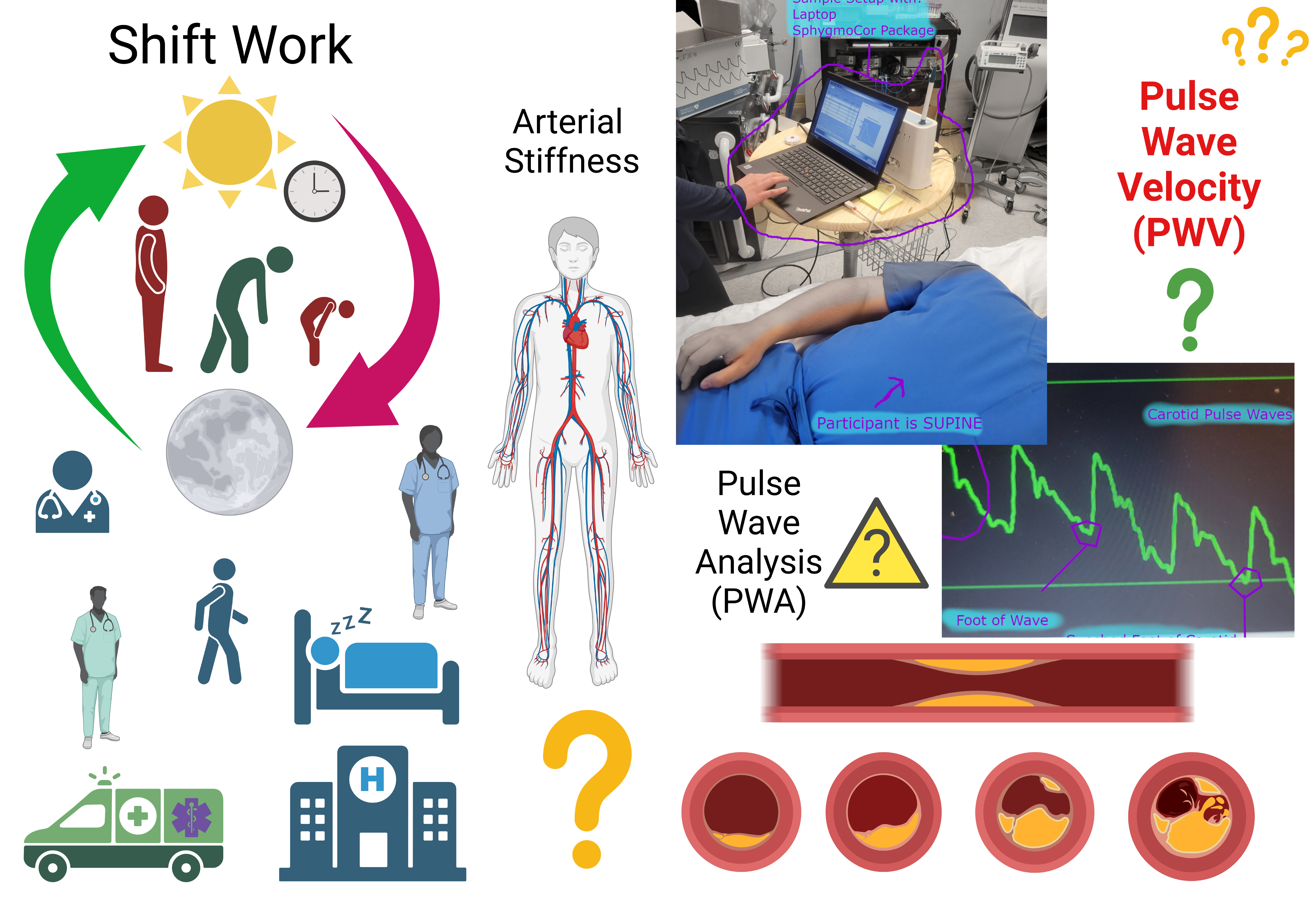
Napping During Shift Work:
- There is much controversy surrounding napping (sleeping) during shift work. Some EMS organizations allow it, whereas others do not. We offer a discussion on the pros and cons of this unique strategy for fatigue mitigation. See this DOI LINK for an open access article on the topic.
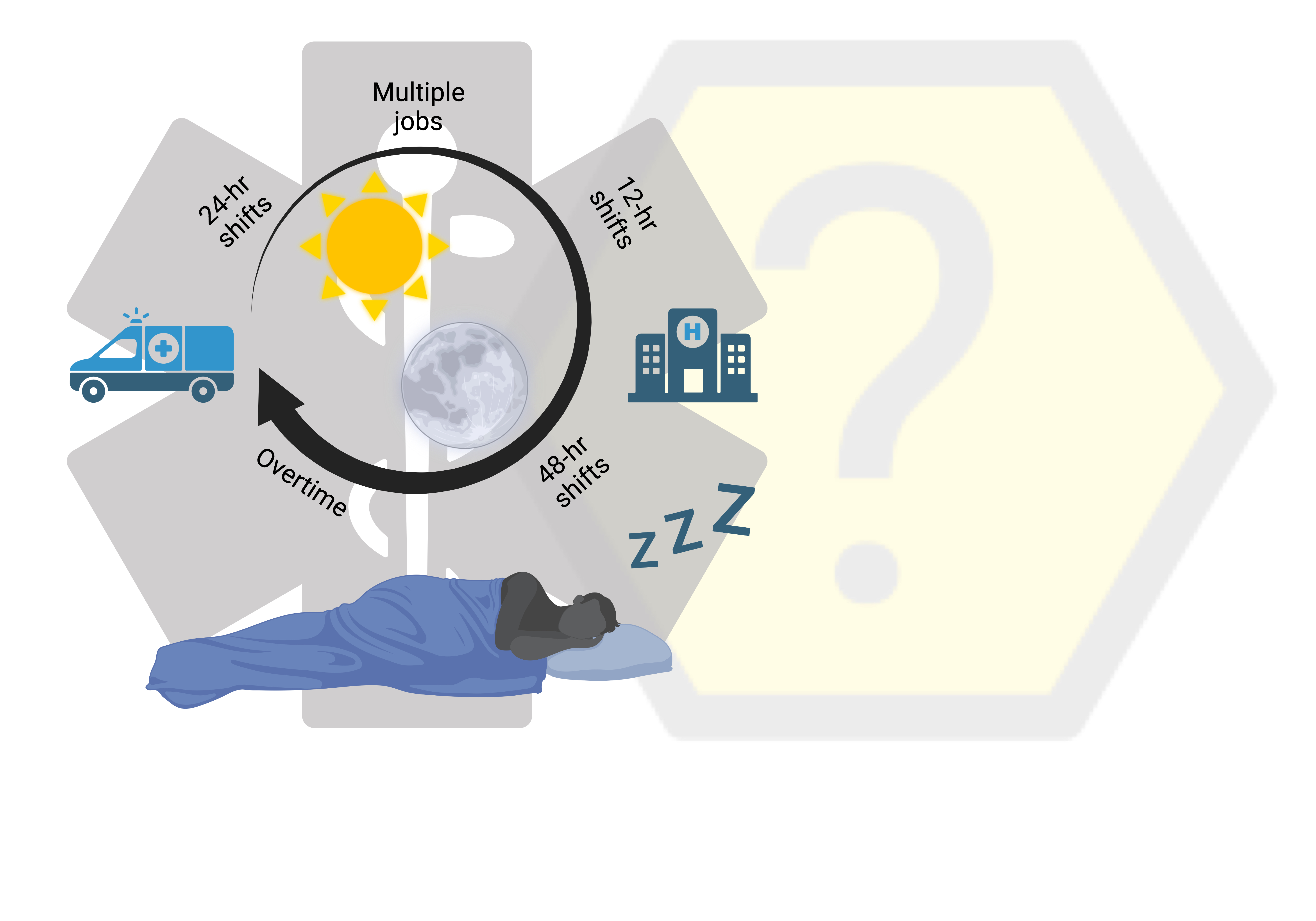
- If you are in EMS and unsure about how long to nap during the night shift, or if you are in administration and unsure about how long to allow your EMS crews to nap during the night shift, take a look at this Systematic Review of experimental studies that test different duration naps on simulated night shifts. This paper provides a systematic review of the best available evidence. The findings may help guide decision making.
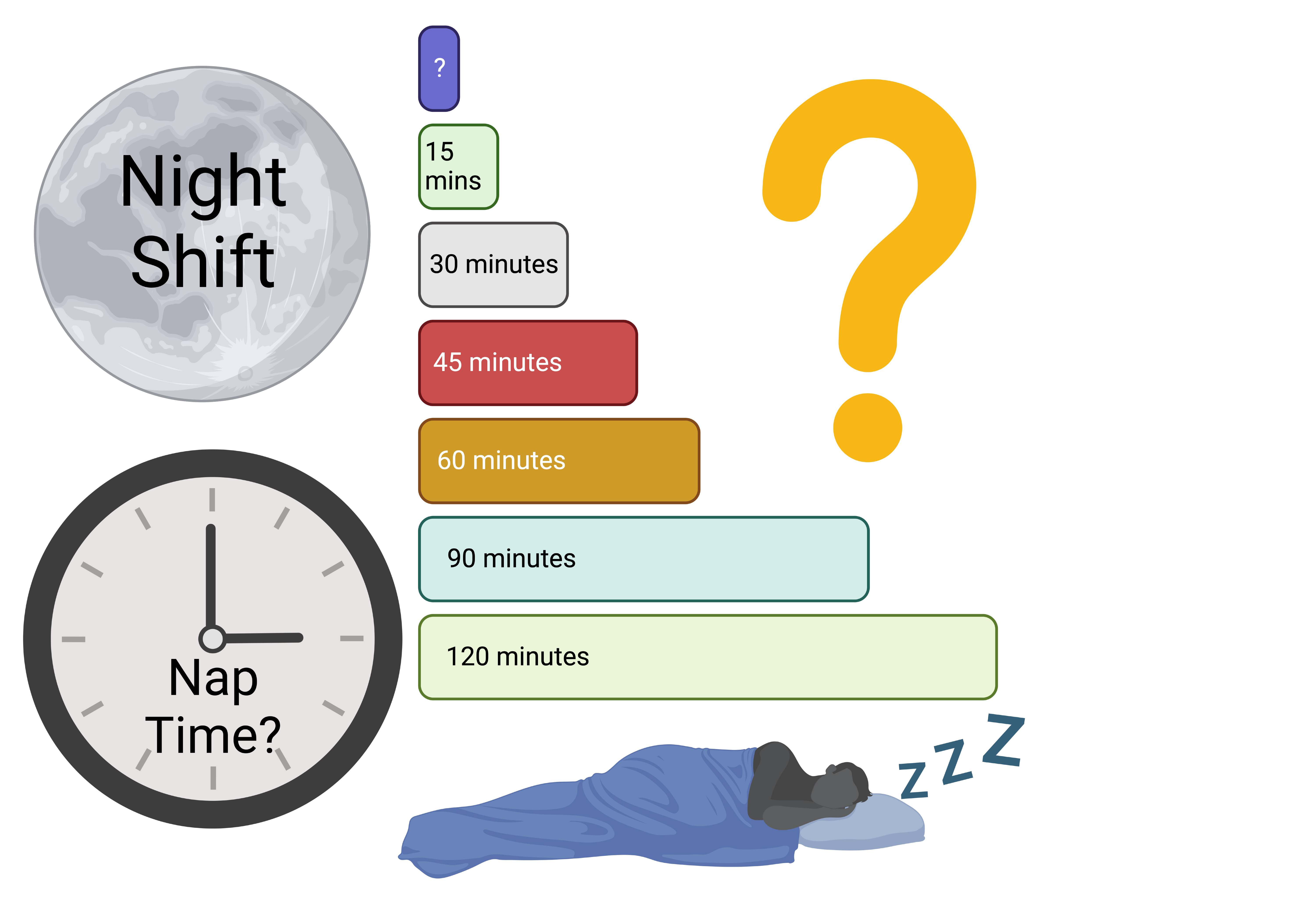
The EMS Sleep Health Research Study:
- The purpose of this experimental research study was to determine the impact of sleep health education and training on EMS clinician sleep quality and fatigue. This research study was supported by the National Highway Traffic Safety Administration (NHTSA) and the National Association of State EMS Officials (NASEMSO). Findings are published in a recent manuscript available at this LINK.
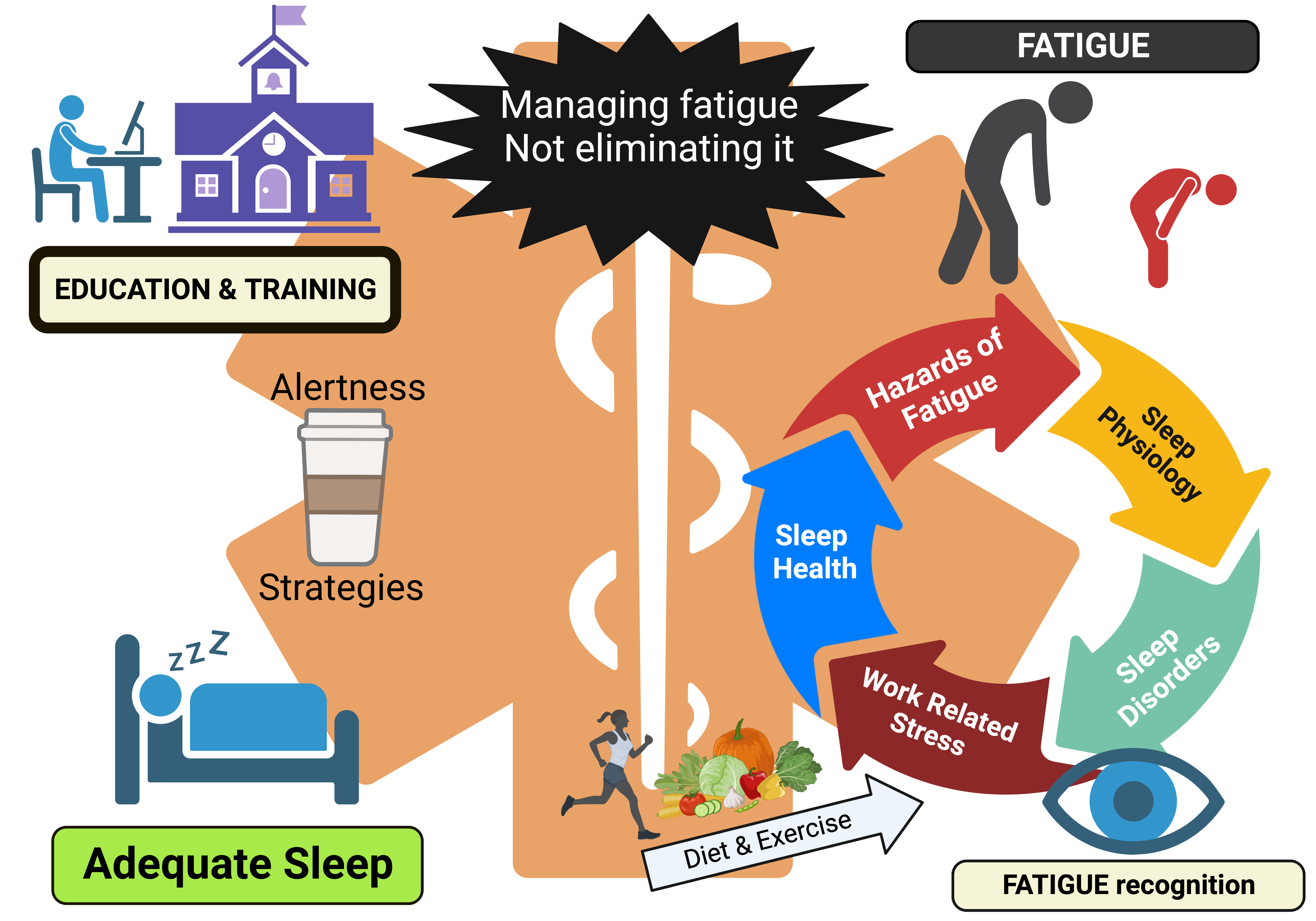
The Sleep and Teamwork in EMS Study:
- This research study uses a cluster-randomized study design of EMS agencies and is focused on sleep and teamwork behaviors in EMS. Investigators will use novel data collection tools such as a mobile app and text messages. Support for this research study comes from the National Institute for Occupational Safety and Health (NIOSH). See the study specific website: www.saftie.pitt.edu for more information.
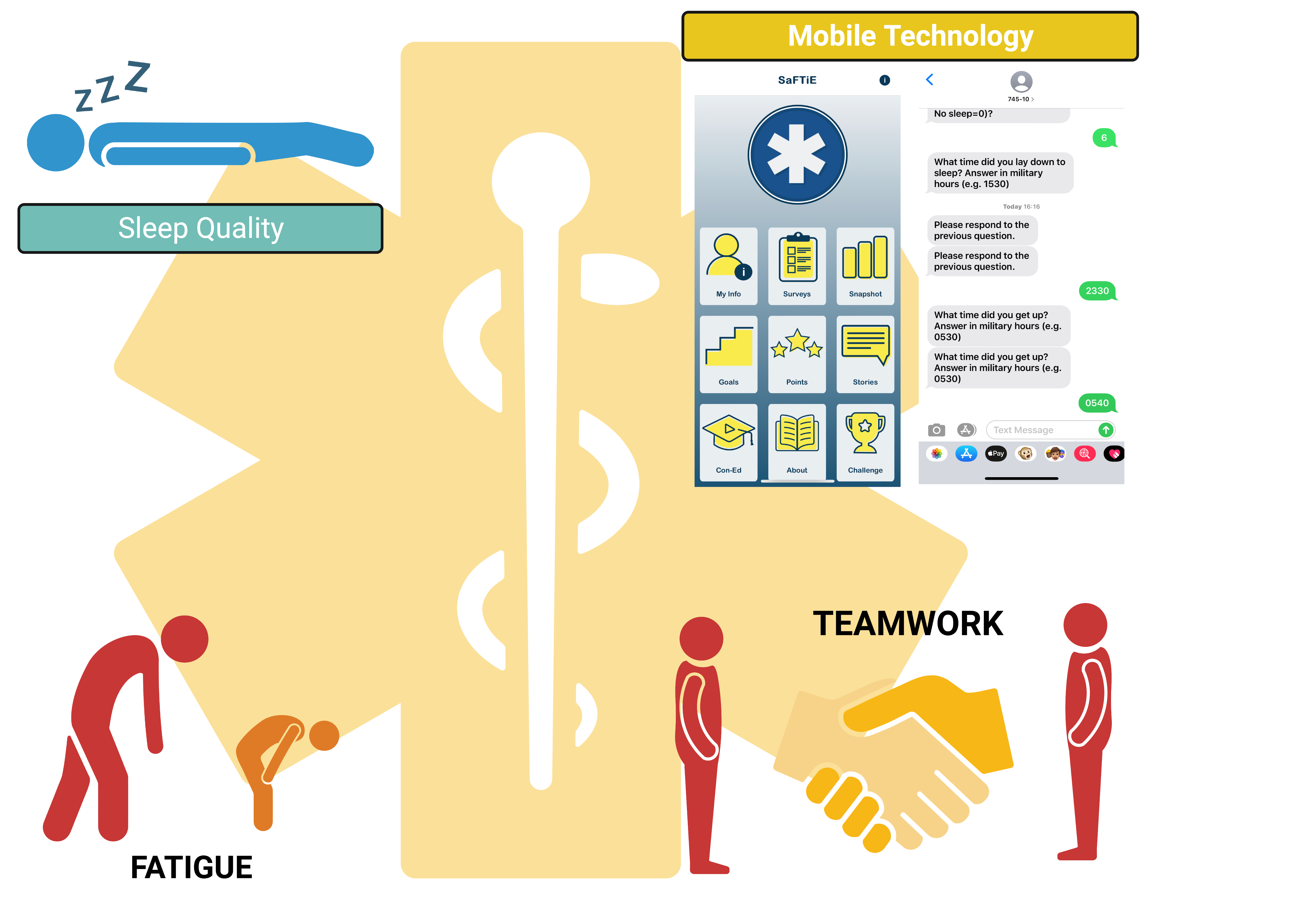
Impact of Intra-Shift Naps on Indicators of Cardiovascular Health among EMS Clinicians:
- In this lab-based experimental cross-over study we tested the impact of a 30-min opportunity, 2-hr nap opportunity, and no-nap during simulated night shifts on key indicators of cardiovascular health (i.e., blood pressure). Support for this research study comes from the ZOLL Foundation. The study protocol can be accessed here: PMID: 33726840. Findings regarding blood pressure related outcomes can be found here: PMID: 37347964. Findings regarding cognitive performance and sleep inertia related outcomes can be found here: PMID: 37347968. Findings from analyses of the post-night shift recovery period can be found here: PMID: 37933729. For more information, please contact the study’s co-investigator (Daniel Patterson, PhD, NRP at pdp3@pitt.edu).
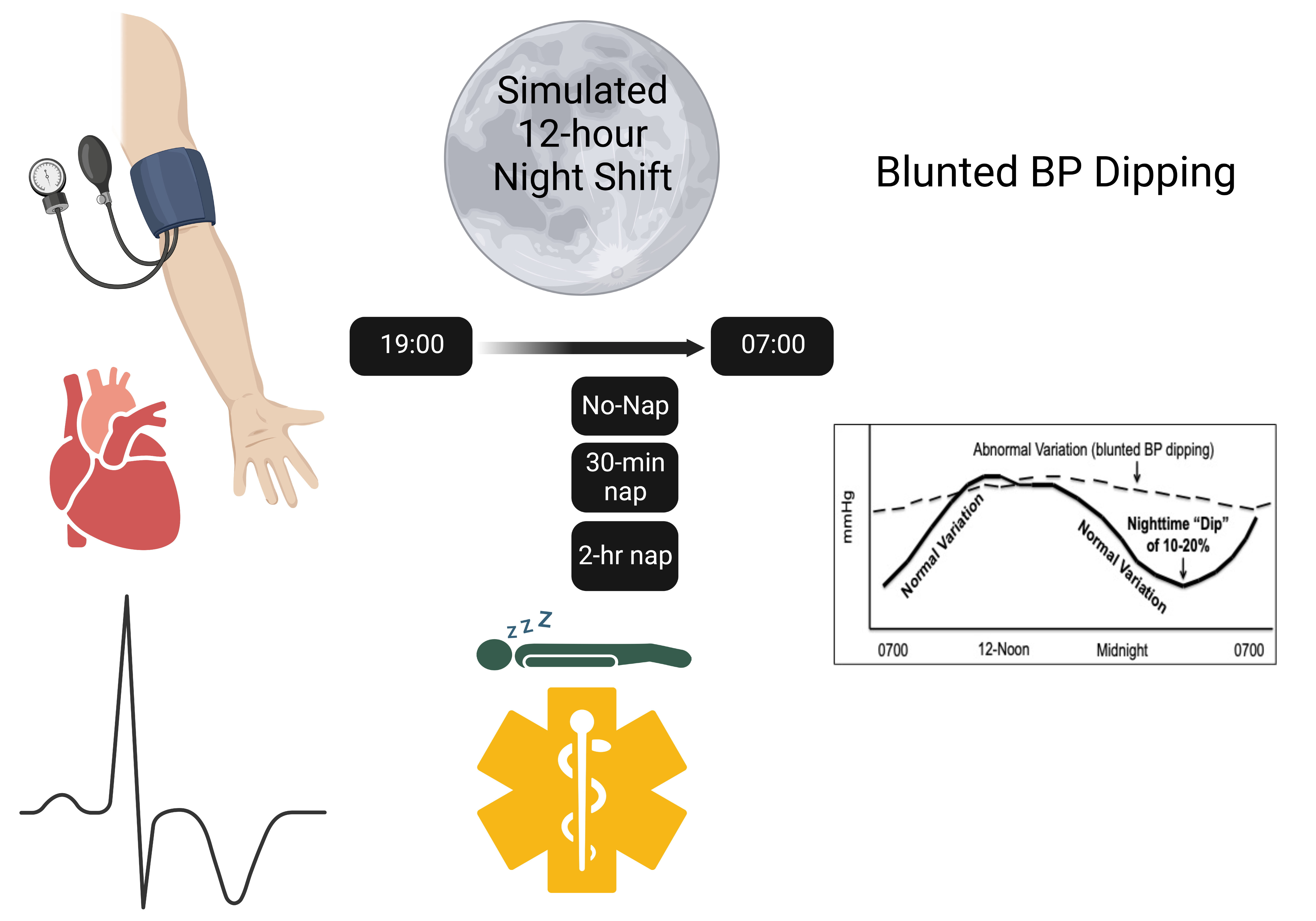
The Ambulatory Blood Pressure Monitoring (ABPM) and Heart Rate Variability (HRV) Feasibility Study:
- This research study uses a prospective 7-day observational study design. Investigators use serial monitoring to assess the impact of shift work on blood pressure (BP) and heart rate variability (HRV) in a small convenience sample of EMS clinician and small convenience sample of traditional day workers. For more information, please contact the study’s principal investigator (Daniel Patterson, PhD, NRP at pdp3@pitt.edu).

The Ambulatory Blood Pressure in EMS Study:
- This research study used a prospective study design of two 24-hour periods of observation. The focus was on EMS clinicians who worked night shift and the impact of napping on blood pressure (BP). The study aimed to: [1] Determine the feasibility of serial ambulatory blood pressure monitoring (ABPM) during one workday and one non-workday in a convenience sample of EMS clinician shift workers; and [2] To characterize patterns of blood pressure (BP) by wake vs. sleep and work vs. non-work periods. Our findings are published in the Occupational Environmental Medicine journal of BMJ. Click HERE for the peer-reviewed publication of study findings.
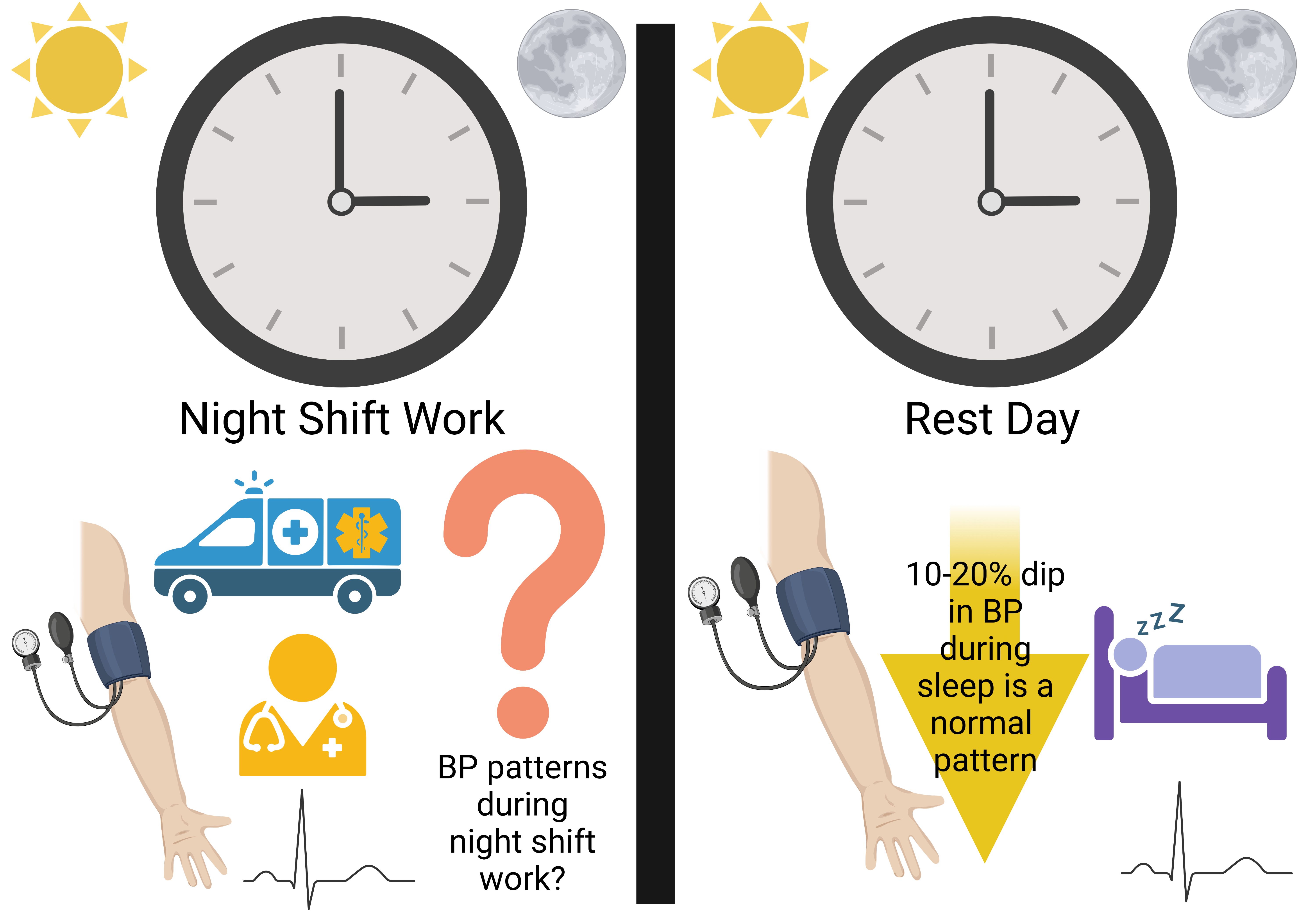
Impact of shift work on blood pressure among Emergency Medical Services clinicians and related shift workers: A systematic review and meta-analysis:
- The purpose of this research study was to identify the available evidence that examined the acute impact of shift work on blood pressure (BP) among EMS clinicians and related shift workers. This project is one of several that involve the University of Pittsburgh Department of Emergency Medicine’s EMS Evidence-Based Practice Center (EMS-EPC). Findings from this study are published in the journal SLEEP HEALTH.
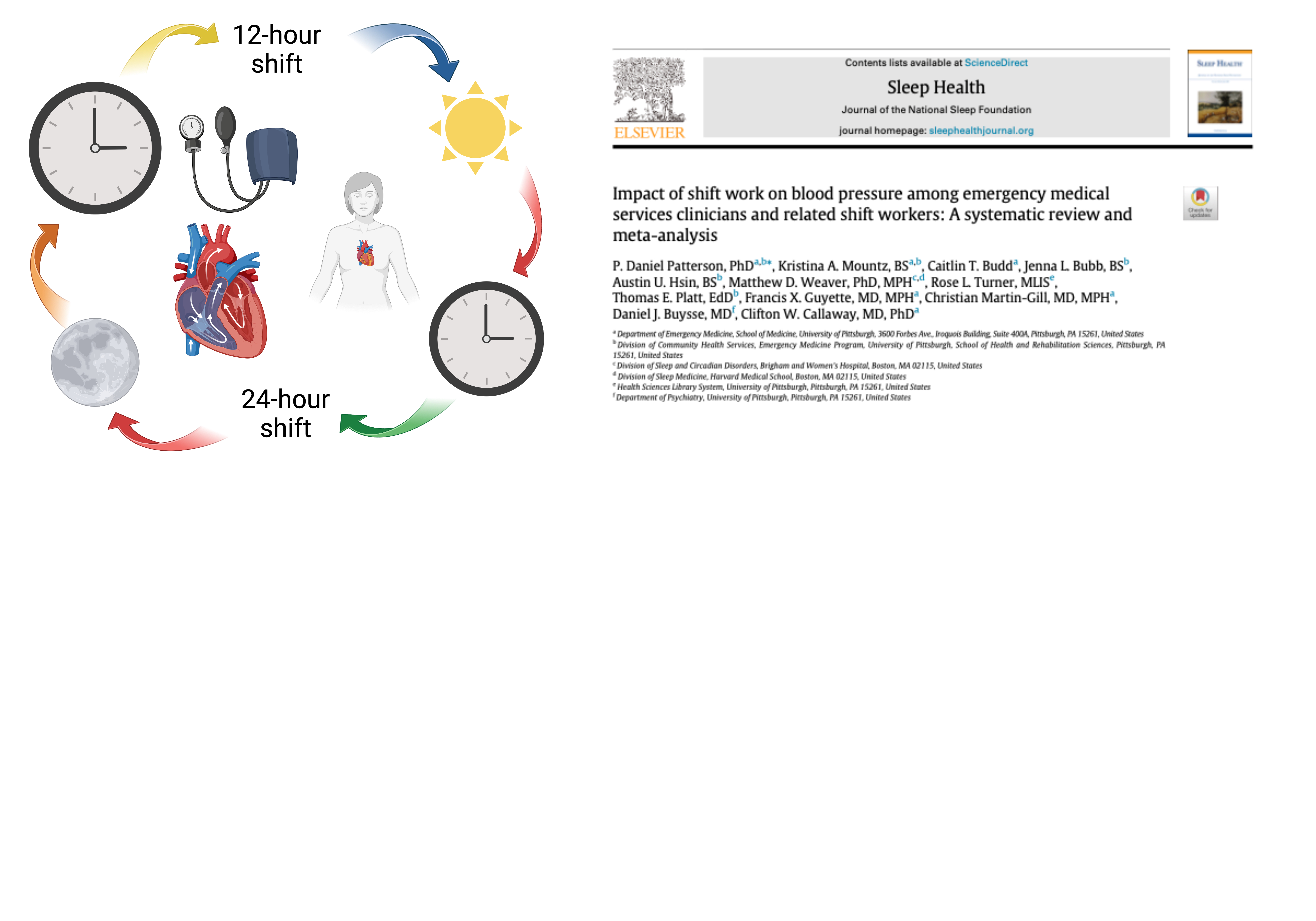
Does evidence support banking sleep by shift workers? A systematic review:
- The purpose of this research study was to examine the published evidence germane to banking sleep prior to shift work and examine the impacts of this intervention on outcomes. This study has concluded and the results are published in the Sleep Health Journal (Volume 5, Issue 4, PMID-31031179). (https://doi.org/10.1016/j.sleh.2019.03.001).
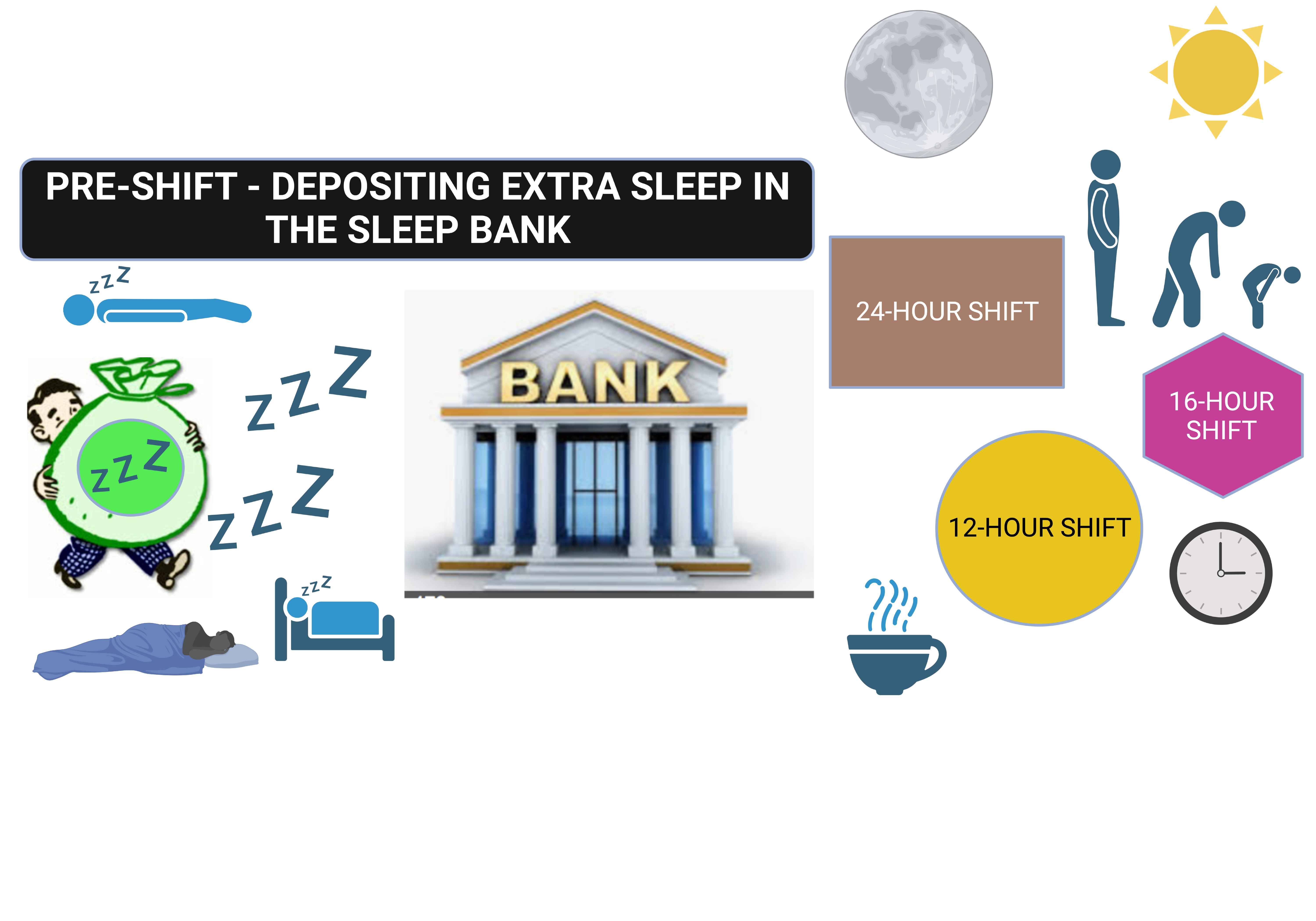
Evidence-Based Guidelines for Fatigue Risk Management in EMS:
- This research project was funded by the National Highway Traffic Safety Administration (NHTSA) in collaboration with the National Association of State EMS Officials (NASEMSO). Phase 1 of this project was completed in 2018 and included seven systematic reviews and multiple meta-analyses. These studies informed an evidence-based guideline process led by Daniel Patterson, PhD, NRP, multiple co-investigators, and the University of Pittsburgh. The results of this project are freely available at www.emsfatigue.org, at https://www.ems.gov/projects/evidence-based-guidelines.html, and at https://www.tandfonline.com/doi/full/10.1080/10903127.2017.1376137
